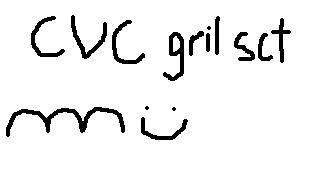What does a speech-language pathologist do?
Speech-language pathologists evaluate and treat speech, language, communication, and swallowing disorders.
Aren't speech and language the same thing?
Nope! Speech refers to spoken communication, like greeting your neighbor on the sidewalk. If you write your neighbor a letter, you're using language, but you're not speaking it. A person can have problems with speech, such as making certain sounds, but not with language. Speech-language pathologists, or SLPS, can help people with both.
How can you have a swallowing disorder?
Swallowing is actually a pretty complicated activity that involves lots of muscles working together. If the timing is off or a muscle is weak, a person can swallow into their lungs and get some nasty respiratory infections. An SLP can spot this problem and help correct it.
I remember SLPs from grade school, but I don't want to work in a school.
Schools are just one of the many settings in which an SLP can work. Nursing home patients often need speech services after a stroke to help them re-learn how to speak or swallow. You can work with infants and toddlers with speech and language difficulties before they reach school age. Hospital patients may need speech services, including pre-mature babies, patients with brain injuries, and stroke victims. There are many therapy organizations that offer speech services, and you can even open your own private practice. Hospice organizations may employ an SLP to help a terminally ill patient communicate his or her last wishes and enjoy favorite foods. You can teach future SLPs in a university setting, or conduct research about new practices in the field. There is an incredibly wide range of opportunities from which to choose!
I had no idea you people were so versatile.
Yeah, we're a pretty talented bunch!
Is it hard to get a job as an SLP?
It is exactly the opposite. According to the American Speech, Language, and Hearing Association (ASHA), the profession of speech-language pathology is expected to grow faster than normal until at least 2014. Medical science is growing tremendously, and pre-mature babies and accident victims have a much higher survival rate, and they often need communication assessment and/or services. There is a greater awareness of the importance of speech and language, not to mention federal laws that mandate providing speech and language services to children who need them, and so more problems are being noticed earlier. The population of elderly adults is also increasing, and the risk of hearing and/or communication impairments in persons of advanced age can be considerable.
I bet you have to go to school forever, don't you?
Not necessarily! Although you can get a doctorate in speech-language pathology if you choose, you can practice with a Master's degree. If you go to school full-time, you can complete the program in as few as 5 semesters. You can also take classes online.
Wow! I can get my Master's degree without leaving my house?
Why would you want to do that? The clinic hours are the most fun and instructive part of your educational experience! All four hundred of 'em! I know it sounds like a lot, but since our profession covers such a broad range of populations, you need to be prepared for the challenges that face you when you begin to practice on your own. You will work with clients of all ages and needs. You will have a fully-trained supervisor checking up on you and providing you with guidance and feedback. Your first year in the field is called your Clinical Fellowship year, and another SLP will be checking up on you and observing you periodically in case you have any questions or concerns.
Well...okay. I'm interested.
Of course you are!
How do you I find out more?
I'm so glad you asked! The American Speech, Hearing, and Language Association (ASHA) is the number one resource for speech-language pathologists. This organization sets the standards for the speech-language pathology profession. ASHA gives you a license to practice, defines the scope of practice for SLPs, defines a code of ethics, and holds you accountable for unethical and unprofessional actions. It's also a resource to find and network with other SLPs or SLP students and to find out the latest research in your area of interest. Their website is www.asha.org.
I know someone who might need the services of an SLP. What should I do?
http://www.asha.org/public/speech/ is a section of ASHA's website designed for public use. It answers four basic questions: "What's 'normal'?, "What if my loved one has already been diagnosed?", "What if I have concerns?" and "Where can I get help?" I would especially recommend http://www.asha.org/public/speech/development/default.htm as a resource for a concerned parent of a child. Children develop at different speeds, and sometimes parents can worry when the neighbor's daughter is talking more than their son and both children were born on the same day. Most of the time it's completely normal, but when in doubt, always ask the communication expert and speech professional: the speech-language pathologist!
This is based on what I hear a lot of time when I tell someone I'm going to be an SLP. When I tell them I'm interested in working with children with autism, I get, "Oh, like Rainman?" I've never seen Rainman. I really need to get around to doing that. I do try to tell them that all children with autism are very different and Rainman is not the status quo by any means.
